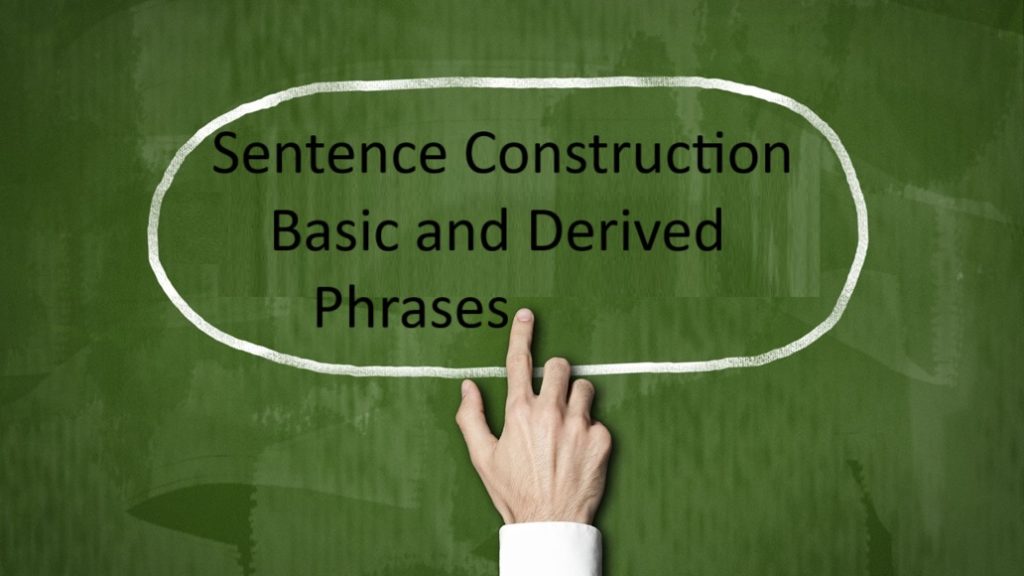The writers need multiple resources for the enriched expression of their concepts. Frequently, writers’ required resources are available to them in readymade form which they can use as per their requirement. However, at times they need to format their resources for expression. For example, for the expression of certain concepts, the writers need to form verbals, i.e., nouns, adjectives and adverbs from verbs. Although these forms of expression are very helpful, these may lead the writers make mistakes in their writing. For example, the writers may use verbals in place of verbs or use one verbal in place of another.
1. Verbals
Sometimes, verbs are used with the function of a noun, adjective or adverb. When verbs are used with these functions, they are called verbals. The verbals that are used as nouns are called gerunds and the ones used as adjectives are termed as participles. Another category of verbals is that takes to before the base form of verb. This category of verbals is called infinitives and can act as nouns, adjectives or adverbs. The importance of verbals is realized when these stay in phrases. Although these do their function as do the other parts of speech, i.e. nouns, adjectives, or adverbs, they retain some of the features of verbs. For example, they can express actions as well as take direct objects, indirect objects, predicative nominatives, or predicative adjectives. In short, verbals commonly function as participles, gerunds and infinitives.
1.1. A Verbal as a Gerund
A gerund is formed by adding ‘ing’ to the base form of a verb and plays the role of a noun in a clause or sentence. It can be used to fill various slots in sentences, i.e., subject, object, or object of preposition. However, it is important to remember that gerunds do not carry inflections (i.e., singular and plural forms) (See 2. Sentence Construction: Basic and Derived Phrases). For example:
- Singing is an art. [a subject]
- He made painting his profession [an object]
- He led his life by sculpturing. [an object of preposition]
- The most hateful thing is lying. [complement of subject]
1.2. A Gerund Phrase
A gerund phrase consists of a gerund, its modifiers and complements. Like a gerund, a gerund phrase may perform all the functions of a noun. Further, it can stay as subject, object, or complement in sentences (See 21. Role of Gerunds in Advanced Writing). For example:
- His sudden shaking surprised me.
- Saleem’s worst habit is speaking continuously.
- He stopped his walking at once.
- He takes exercise by riding a bicycle.
In example (a), his sudden shaking is a gerund phrase and his is a determiner, sudden is an attributive adjective and shaking is a gerund staying as a noun. In (b), speaking continuously is a gerund phrase in which speaking is a gerund and continuously is predicative adverb. In (c), his walking is a gerund phrase in which his is a determiner and walking is gerund. In (d), by riding a bicycle is a prepositional phrase and in this PP, the gerund phrase (riding a bicycle) is doing the role of the object of the preposition by.
Like the gerund, a gerund phrase may perform all the functions of a noun. For example:
- Playing the drums is Naseer’s hobby. [subject]
- Zahid’s job was feeding the hens. [predicate-nominative]
- The committee opposed raising taxes. [direct object]
- We should proceed by moving slowly, [object of a preposition]
- He gave television broadcasting new respectability. [indirect object]
- Her task, reading ten books in two days, seemed impossible. [appositive]
1.3. Verbals as Participles
A participle is a word, that is drawn from a verb. It can be used either as an adjective or a form of certain verb tense. Further, it can stay in the form of present participle (basic verb + ing) or past participle (basic verb + ed/t/en/n). Present, past, and present perfect participles can be used as adjectives as the part of participial phrases. In this post, we discuss participle in the role of adjective only. For example:
- His shining face caught the attention of everybody in the meeting
- Everyone in the meeting noticed his shining face.
- This broken table cannot be used in the dining room.
- Tormenting the laborers, the land owner spoke about the discipline at the workplace.
- We have to remove this broken table from the dining room.
- Raheel was exhausted after writing his assignment.
- Replenished after taking tea, Raheel got busy in his work.
- Having addressed the meeting, the manager left for his office.
In the examples given above both the present and past participles have been used. In examples (a, b, & c), present participles shining, and dining have been used as adjectives. In (d), tormenting has been used as the initiator of present participial clause. In (e) past participle broken has been used as adjective and in (f), exhausted is past participle and used as predicative adjective; in (g), past participle replenished has been used as initiator of a participial clause; and in (h) having addressed is an initiator of present perfect participial clause.
1.3.1. Participial Phrase
When a participle (as an adjective) stays along with other words, it becomes the part of a phrase which is known as participial phrase. If this phrase stays in the beginning of a sentence, it takes comma after it. In case, it stays in the middle of a sentence, it needs be set off with the help of commas if it does not carry essential information. For example:
- Listening to the news, he moved his car to the parking lot.
- The woman cooking food is my mother.
- The tourists, postponing their departure, continued their stay in the hill station.
1.3.2. Dangling Participles
At times, the learning writers place a wrong noun or pronoun next to a participial phrase. When this sort of placement occurs, the participle or participial phrase goes dangling (misplaced) and is considered as a grammatical error. For fixing a dangling participle or participial phrase, the writers should place the correct subject immediately after it. Another way is rewriting participial phrase to include its subject. For example:
i. a. Looking through the magnifying glass, the fly was mountainous.
b. Looking through the magnifying glass, I saw the mountainous fly.
ii. a. Walking on the roadside, the dog bit me.
b. As I was walking on the roadside, the dog bit me.
The example, (i-a) indicates as if the mountainous fly was looking through the magnifying glass. Similarly, (ii-a) shows as if the dog was walking on the roadside. These mistakes have been fixed in example (i-b & ii-b). It can be seen that reshaping helps make the aimed at meaning clearer.
1.4. Verbals as Infinitives
Infinitives begin with ‘to’ and do the function of nouns, adjectives, or adverbs. However, their function depends on their context in the sentence. For example:
- To err is human.
- I have research problem to investigate.
- He sat to relax his body.
In example (a), to err has the function of a noun as it stays in the position of subject of the sentence. In (b), to investigate has the role of adjective as it modifies the noun problem. In (c), to relax is doing the role of adverb as it modifies the verb sat.
1.5. Gerunds and Participles
A gerund is a verbal that ends in ‘ing’ and functions as a noun only. Gerunds emerge from verbs but they also retain verb properties, i.e., they take objects and adverbs. For deriving a noun from a verb, –ing is added to the basic verb. The same happens in the case of present participle. However, a gerund performs the function of a noun and participle serves as an adjective or adverb.
1.5.1. Gerund used in sentences
- Acting has become very popular. [as subject]
- My favorite pastime is walking. [as predicate nominative]
- They enjoyed your dancing. [as a direct object]
- You can help us by cooperating. [as object of preposition]
- Nasreen gave fishing a try. [as indirect object
- My favorite exercise walking keeps me in great shape. [as an appositive]
Gerunds, on account of their verbal nature, name activities, behaviors, states of mind, or states of being and not persons, places, things or events.
1.5.2. Present Participle used in sentences
- The tourists visiting health resorts need be responsible. [as a participial adjective]
- The working women suffer from many family problems. [as an attributive adjective]
- This story is interesting. [as a predicative adjective]
This post covers the way verbals are derived from verbs and their significance in advanced writing. Further, it provides details regarding the categories of verbals, i.e. gerunds, participles and infinitives and their respective functions in sentences. For example, gerunds do the function of nouns; participles perform as adjectives; and infinitives perform the role of nouns, adjectives and adverbs. On account of such functions, they stay in the position of subject, object, predicative adjective, object of preposition, complements, etc. Although all the three verbals perform as nouns, adjectives and adverbs, however, they retain the characteristics of verbs from which they are drawn, i.e., they take objects and complements.
Sources Consulted
- Kolln and Funk (1998)
- Ryan (2023),
- Trask (2006)


